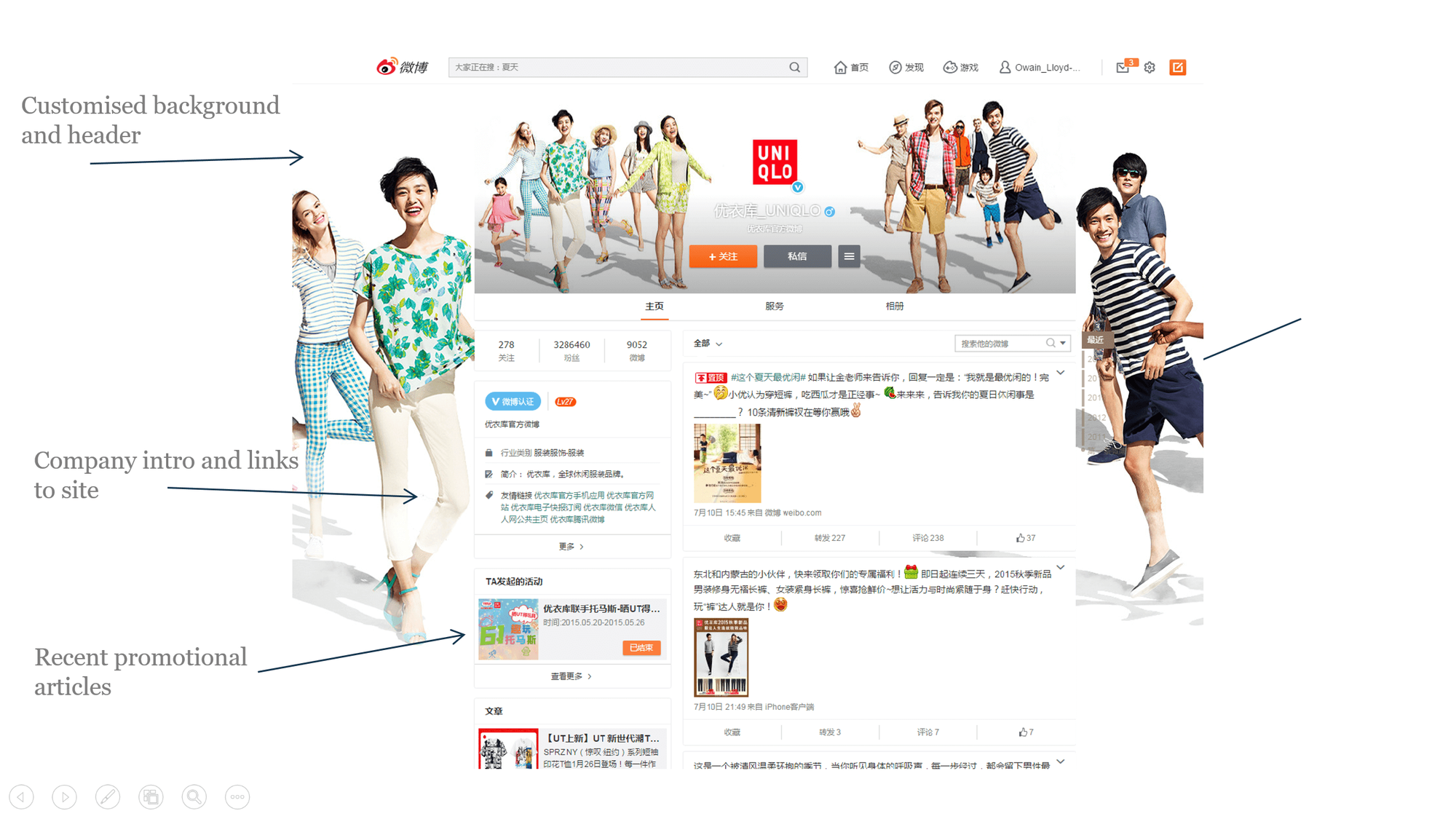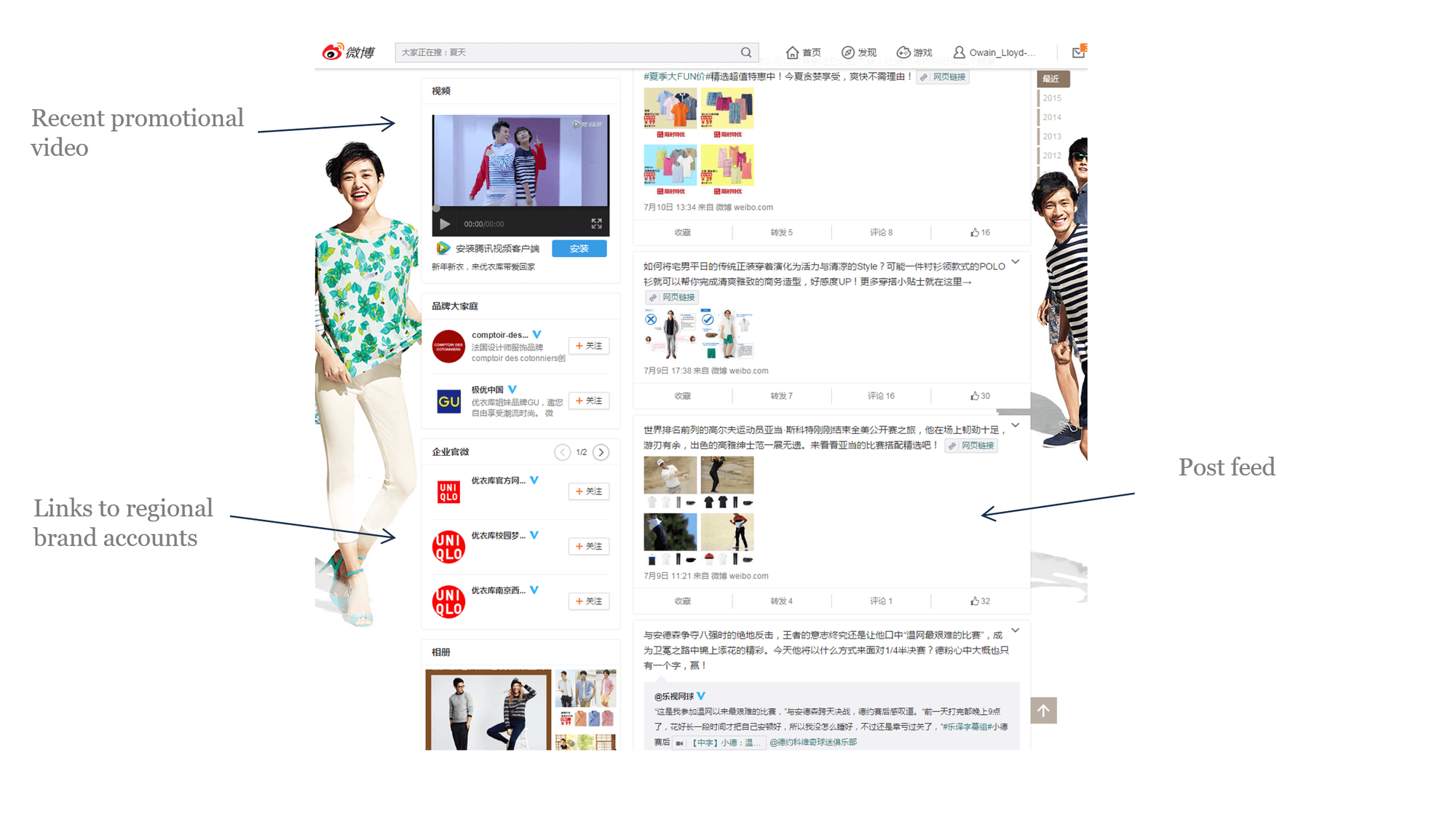Leveraging Chinese Social Media for Content Insights – Sina Weibo
In a similar fashion to what we have over here with Twitter, Facebook and beyond, the Chinese social media landscape is a goldmine of ideas and information for exploring content and getting closer to what people are really talking about.
A few other additional factors make using social media in Baidu optimization particularly pivotal, however. First, the sheer volume of users on each platform – a combined total of 1.4 billion accounts on QZone, WeChat, RenRen and Sina Weibo alone – make for a vast depth of ideas and variety of content and discussion.
Social media in China, although still heavily monitored, also allows China’s modern, savvy internet demographic a certain degree of expression, autonomy and the space to discuss certain topics and taboos in what is still a largely regimented society offline. This allows for a really fascinating and truer insight into what makes people tick in China. Also, the importance of peer-to-peer recommendation, a sense of involvement and belonging as well as the speed at which things are picked up, shared around, go viral and subsequently change is something not to be underestimated.
There are quite a few key popular social media platforms to consider (as well as several up and coming ones) however one go-to hub for content research and insights into China’s bustling social demographic is Sina Weibo, China’s Twitter-Facebook hybrid phenomenon.
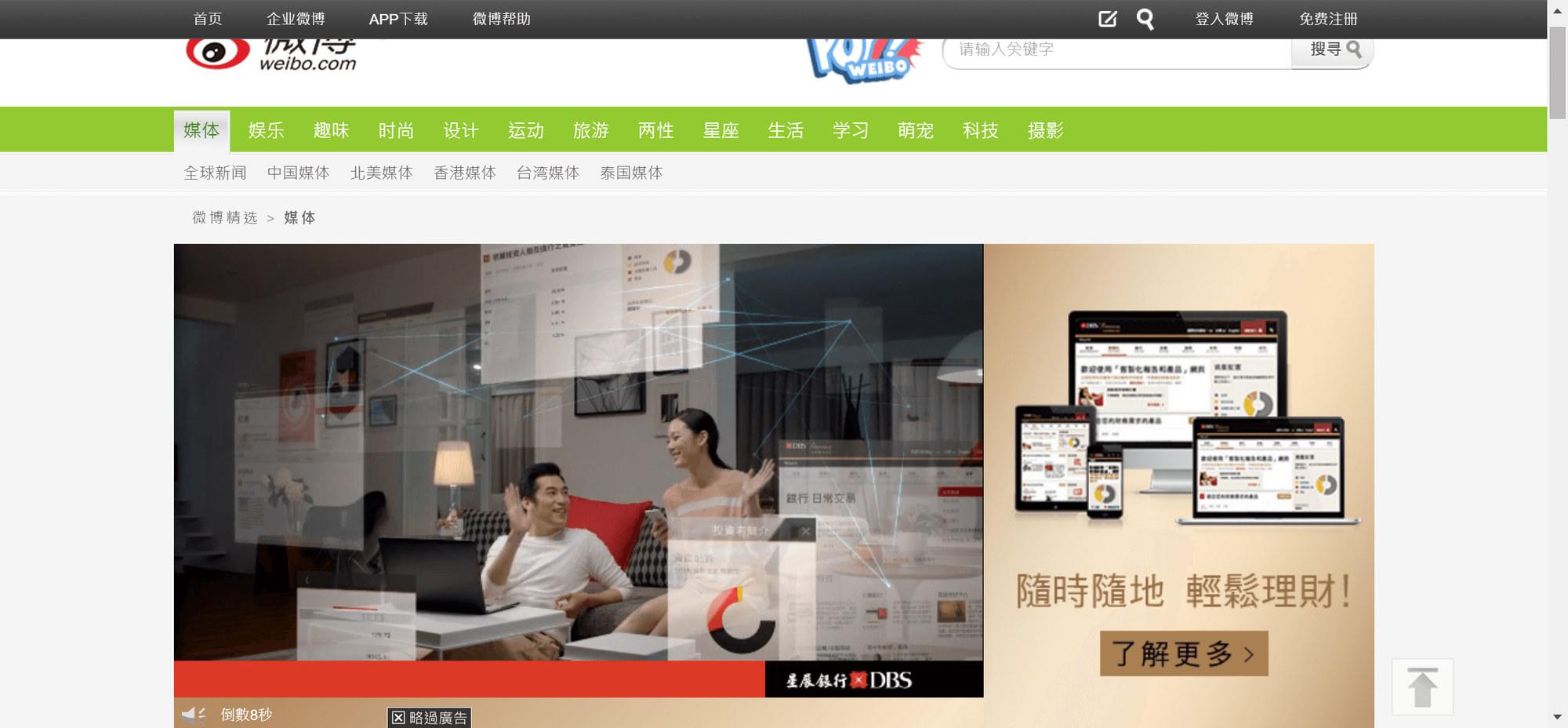
Here are a few introductory points:
- Launched in August 2009
- 178 million monthly active users, who spend an average of two hours a day on the platform
- Around 100 million posts per day
- Offers 280 character limit as opposed to Twitter’s 140, and features a comment function when users re-tweet posts
- Extra functionality and promotional activities available to paid VIP and Enterprise account holders
Signing up to Weibo is easy and requires nothing more than an email and password. Its interface does currently support partial English allowing you to guide yourself through some of its key sections, tabs and features. User posts and content however will almost exclusively be in Chinese. Although we recommend employing the use of a Chinese speaker to digest the content accurately, Google Chrome Translate can be relied on to an extent. Regardless, below is a little exploration of some ways to make use of Weibo to get an understanding of the key content topics you’re after.
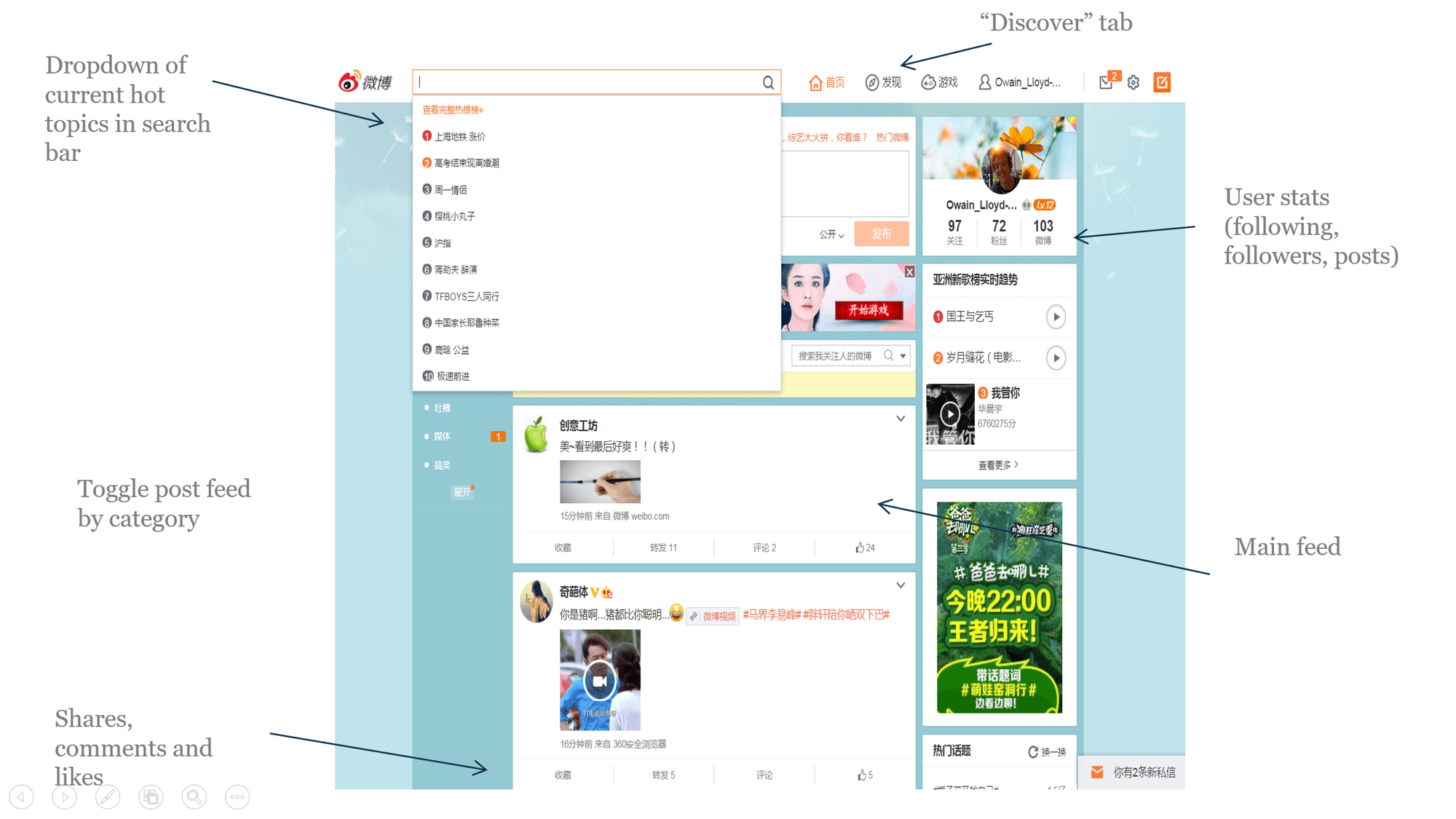
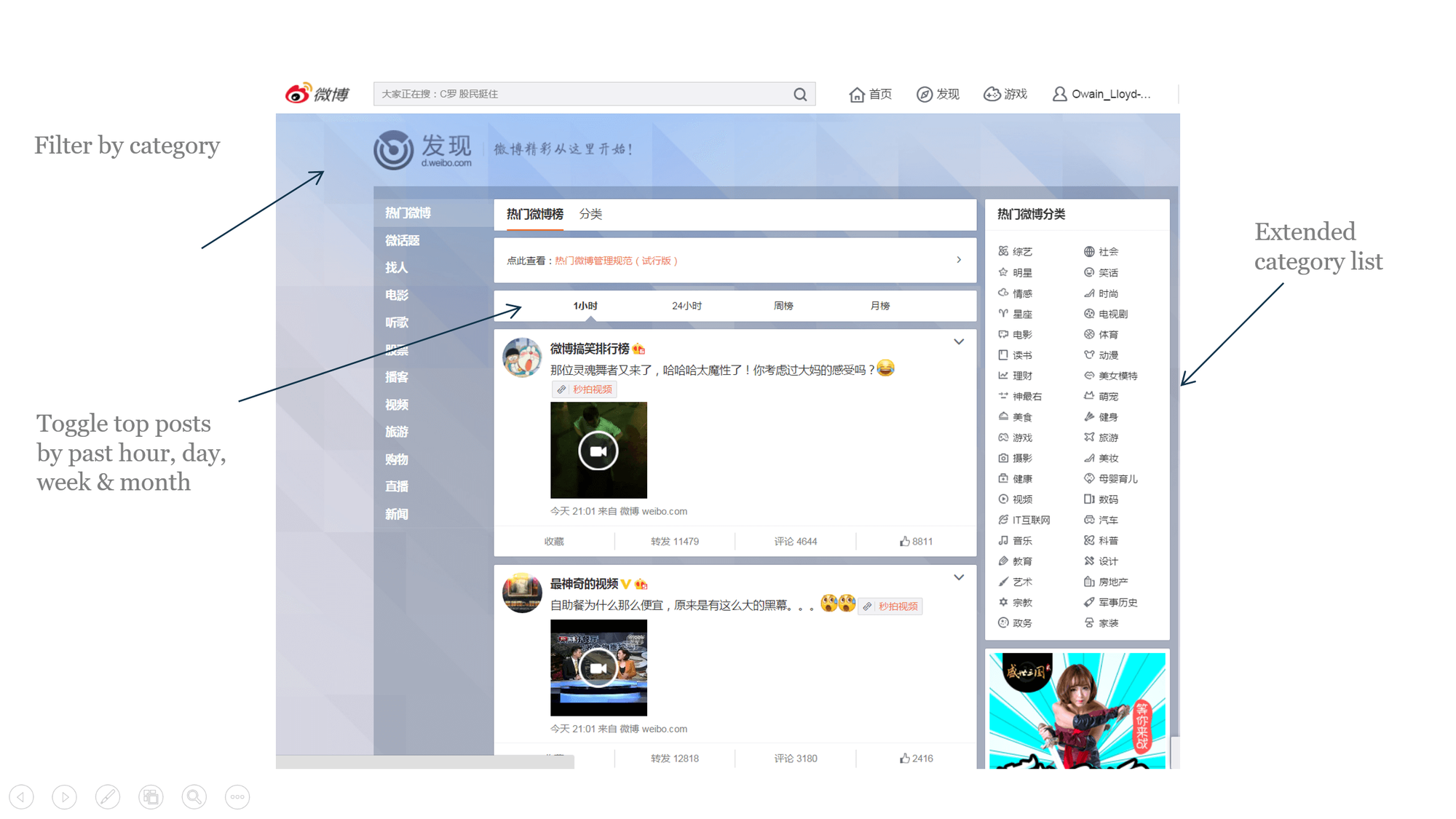
Weibo Enterprise
Weibo also offers a variety of upgraded paid services that allow you access to more features. The cream of the crop comes in the form of Weibo Enterprise. This serves as a customised brand platform allowing official accounts to tailor their own Weibo pages relatively liberally, allowing for the incorporation of interactive elements such as photo albums, videos via Youku, customised widgets, affiliate links, user polls and more.
Moreover, Weibo Enterprise also features its own analytics and task management system, allowing you to identify granular information on precise user behaviour with the content you share, plan content strategies, obtain further social data and identify industry influencers. When it comes to content marketing within Chinese social media, identifying and leveraging influencers, or “KOLs” (Key Opinion Leaders) as they’re known in China, is vital to enhancing brand reputation and reaching out and growing your audience.
Celebrities aside, many industries in China have a wide range of KOLs with significant Weibo following, and while this is rather heavily monetised its significance lies within the notion of users harbouring high levels of trust in these respected individuals.
Weibo Enterprise does require the breaching of some bureaucratic hurdles to obtain however, with photocopied files of company registration certificates, an authorisation letter from the company confirming the management of the account by a third party and costs in the hundreds of dollars depending on the company location. To get a feel for what it can do for you however, here’s a look at the current Enterprise account held by clothes outlet Uniqlo.
